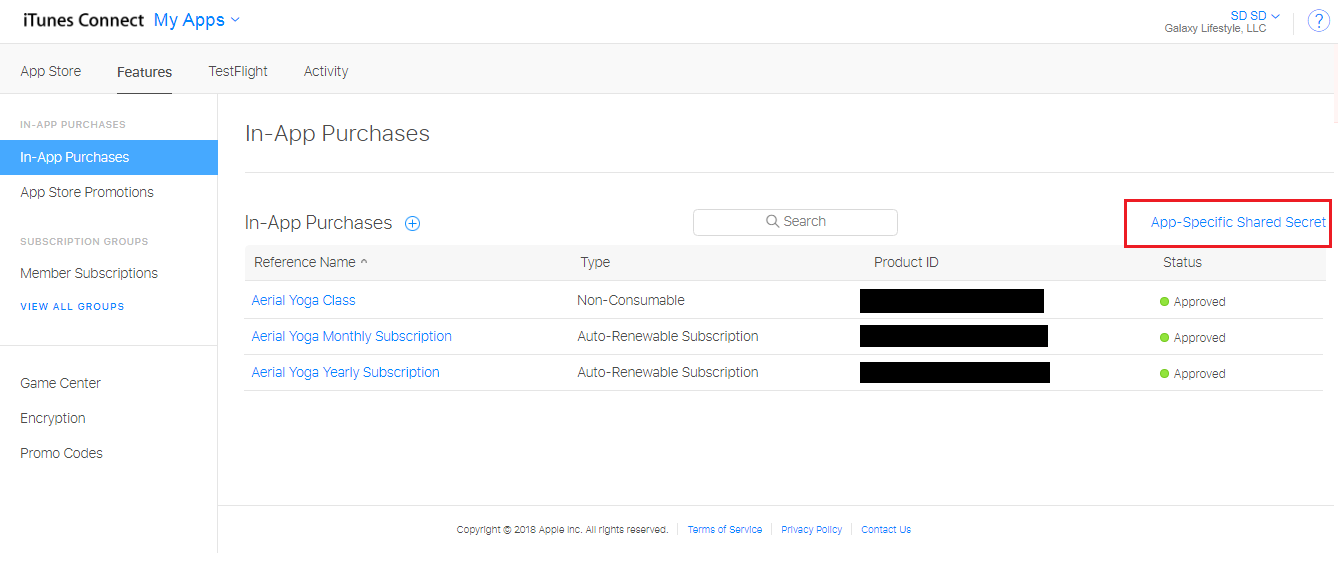Secret Key Generator In Ios
- Javascript tool to convert Cisco type 5 encrypted passwords into plain text so that you can read them. This is done using client side javascript and no information is transmitted over the Internet or to IFM.
- Often when writing iOS apps, we need to store secret keys for accessing APIs and the like, so that your backend can verify that requests are actually coming from your app. And usually, it’s worth keeping these keys secret from most prying eyes, which is what this article is about.
- I realized this was one issue that many of you might be facing due to recent changes in Facebook’s API. In this tutorial, you will learn how to use Facebook developers page to create a new app & get your own Facebook App ID & Secret key.
- Secret Key Generator In Ios Download
- App Icon Generator Ios
- Key Generator Download
- Secret Key Generator In Ios 7
Generate a Rails Secret Key. Have you ever wondered about those secret keys found in config/secrets.yml of your Rails app? The comments generated in that file describe the keys as such: ‘Your secret key is used for verifying the integrity of signed cookies.’ Great but what if they become compromised? Or we need to change them? RandomKeygen is a free mobile-friendly tool that offers randomly generated keys and passwords you can use to secure any application, service or device. KEY RandomKeygen - The Secure Password & Keygen Generator. Use the secret key from facebook to Add Secret in the Code Generator app. Please note that, for successful code generation your device clock need to be in correct time and date and also set to. RandomKeygen is a free mobile-friendly tool that offers randomly generated keys and passwords you can use to secure any application, service or device. KEY RandomKeygen - The Secure Password & Keygen Generator.
This class provides the functionality of a secret (symmetric) key generator.Key generators are constructed using one of the getInstance class methods of this class.
KeyGenerator objects are reusable, i.e., after a key has been generated, the same KeyGenerator object can be re-used to generate further keys.
There are two ways to generate a key: in an algorithm-independent manner, and in an algorithm-specific manner. The only difference between the two is the initialization of the object:
- Algorithm-Independent Initialization
All key generators share the concepts of a keysize and a source of randomness. There is an
initmethod in this KeyGenerator class that takes these two universally shared types of arguments. There is also one that takes just akeysizeargument, and uses the SecureRandom implementation of the highest-priority installed provider as the source of randomness (or a system-provided source of randomness if none of the installed providers supply a SecureRandom implementation), and one that takes just a source of randomness.Since no other parameters are specified when you call the above algorithm-independent
initmethods, it is up to the provider what to do about the algorithm-specific parameters (if any) to be associated with each of the keys. - Algorithm-Specific Initialization
For situations where a set of algorithm-specific parameters already exists, there are two
initmethods that have anAlgorithmParameterSpecargument. One also has aSecureRandomargument, while the other uses the SecureRandom implementation of the highest-priority installed provider as the source of randomness (or a system-provided source of randomness if none of the installed providers supply a SecureRandom implementation).
In case the client does not explicitly initialize the KeyGenerator (via a call to an init method), each provider must supply (and document) a default initialization.
Every implementation of the Java platform is required to support the following standard KeyGenerator algorithms with the keysizes in parentheses:
- AES (128)
- DES (56)
- DESede (168)
- HmacSHA1
- HmacSHA256
- Java Cryptography Tutorial
- Message Digest and MAC
- Keys and Key Store
- Generating Keys
- Digital Signature
- Cipher Text
- Java Cryptography Resources
- Selected Reading

Java provides KeyGenerator class this class is used to generate secret keys and objects of this class are reusable.
To generate keys using the KeyGenerator class follow the steps given below.
Step 1: Create a KeyGenerator object
The KeyGenerator class provides getInstance() method which accepts a String variable representing the required key-generating algorithm and returns a KeyGenerator object that generates secret keys.
Create KeyGenerator object using the getInstance() method as shown below.
Step 2: Create SecureRandom object
The SecureRandom class of the java.Security package provides a strong random number generator which is used to generate random numbers in Java. Instantiate this class as shown below.
Secret Key Generator In Ios Download
Step 3: Initialize the KeyGenerator
App Icon Generator Ios
The KeyGenerator class provides a method named init() this method accepts the SecureRandom object and initializes the current KeyGenerator.
Initialize the KeyGenerator object created in the previous step using the init() Call of duty black ops 4 key generator no survey. method.
Key Generator Download
Example
Secret Key Generator In Ios 7
Following example demonstrates the key generation of the secret key using the KeyGenerator class of the javax.crypto package.
Output
The above program generates the following output −